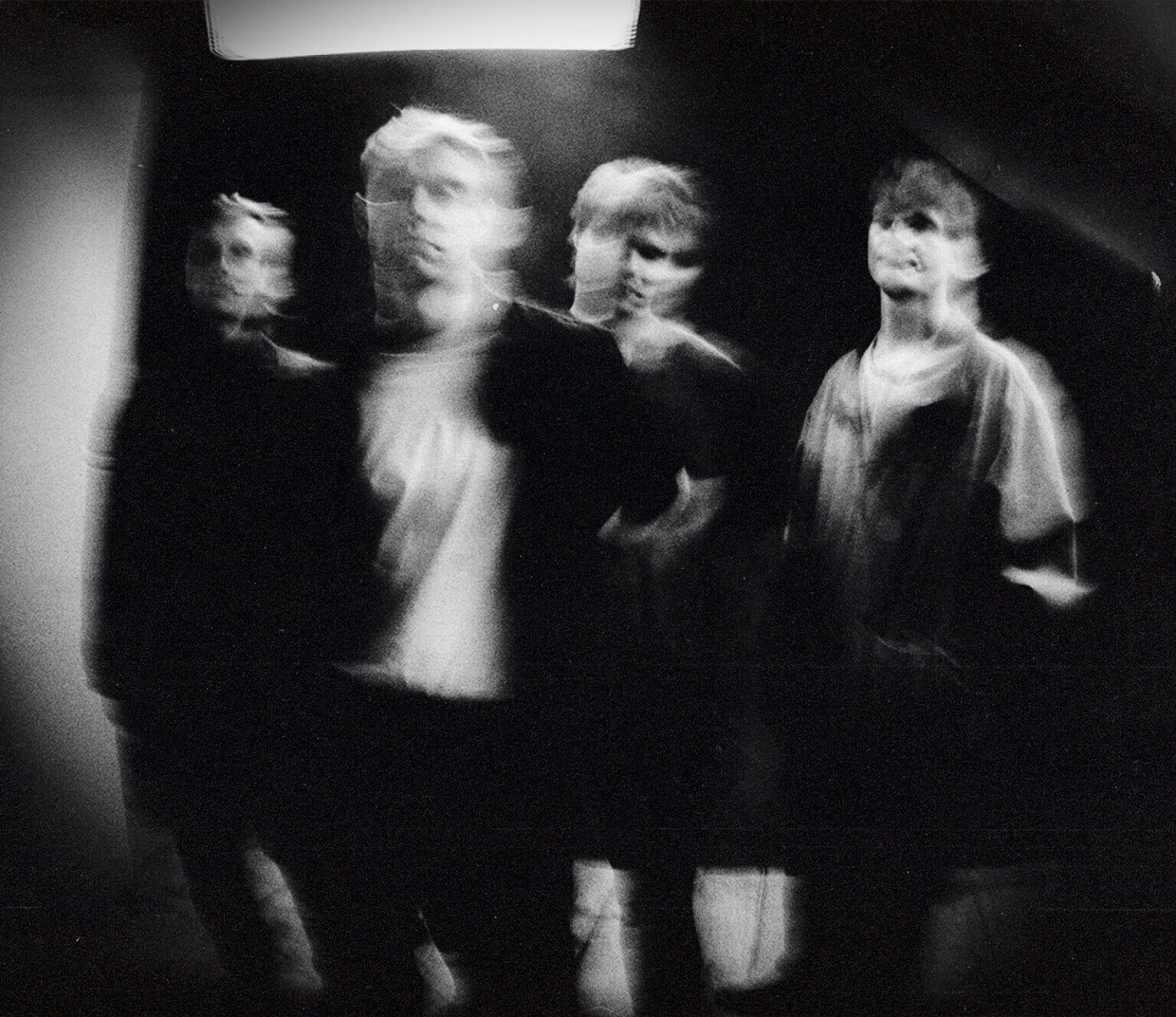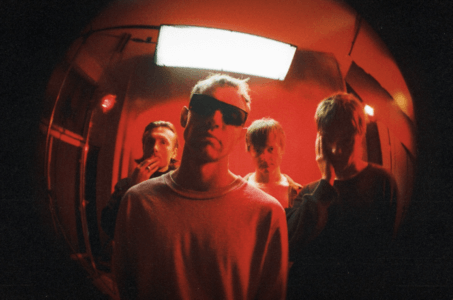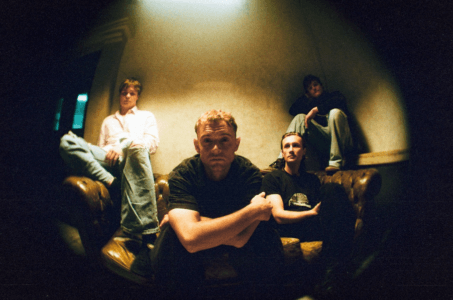Wunderhorse Are Riding A Nice Wave

Wunderhorse have amassed a devoted fan base through their post-punk expertise and an undeniable live show that has seen them tour across Europe, even opening up for indie-giants Fontaines D.C. Prior to the release of their much anticipated sophomore effort Midas, singer-songwriter Jacob Slater joined Northern Transmissions to discuss Midas’ mission statement, and his approach to remaining grounded in the midst of an unpredictable musical landscape.
Northern Transmissions: A big focus for this record was to have an unpolished recording approach. Was your writing process for the record something that was equally as carefree, or did that part have more of a considered approach?
Jacob Slater: It’s a funny one really. We went in with a handful of ideas which quickly became apparent that most of them weren’t going to work – so there was a brief moment of panic. I dredged up a sequence of chords that I had been messing around with and that was the idea that turned into “Midas.” We wrote that on the spot in the studio. From then, we wrote most of the record that way, in the studio while we were there. I don’t know how or why it worked but for that month we were in the studio most of the record just came together on the spot.
NT: Even the lyrics came together on the spot?
JS: Yeah the only two songs that made it onto the record which were written prior to the recording was “Arizona” and “Superman.” Other then that, everything was done in the session. Basically, 3 weeks in there, a month of touring then went back in. Everything is from that period.
NT: Did you feel like even if you didn’t have any fully-realized musical ideas, that you had an overall mission statement or any particular themes you wanted to write about for the record?
JS: I think the main thing we were focusing on going into it was the sound of it. Just making sure that it was more rough around the edges compared to the first one. Y’know we’re such a live-band and that side of us wasn’t really reflected in the first album. So that was the main mission really. Looking back on the Midas sessions, themes lyrically and stuff came to light. It was all such a small bracket of time that it was all drawing from the same emotional place.
NT: You’ve mentioned that you got really really burnt out from your first band Dead Pretties. Is there anything now that you’re trying to do to avoid burnout like that?
JS: Surfing was a big thing for me. I’ve been surfing since I was a kid so I went back to that during that period. I still do that whenever I can, but it can be difficult as the schedule starts filling up more and more. I’m not doing much of the things I was doing when I was younger on a regular basis. I guess you have to implement that a bit if you want to keep going. Our band has to tour more and more, because that’s the main way we make money because income from streaming doesn’t really cut it. If you’re looking at your year, and got 10-11 months of touring, you’ve gotta look at that and say well, you can’t have fun all the time. Which is wise, I guess.
NT: Did it feel daunting re-entering the musical landscape after already taking a crack at it with another band?
JS: Yeah, I think I just said “oh well I’ll just do something new.” But it took years and years to get that off the ground, it was quite a bit harder the second time around. That first band, I mean we never blew-up or anything but it looked promising. We got in when we were 17-18, and there was a lot of stuff happening in South-London. There was this scene that was being written about a lot and when I came back with the Wunderhorse stuff, it had just disappeared. I was drifting around, wondering if anyone gave a shit about it. Luckily some of the Fontaines D.C. boys heard the music and asked us to open up for them, and that was when the ball started to really roll for us, when people started seeing us live.
NT: Was it a challenge to shed any sort of identity that you or the audience had attached to yourself through your old projects?
Slater: Yeah I think whenever it’s something new people might take an interest through the old thing. They expect a certain thing from you and maybe they get upset that you aren’t what they thought you were and go off and listen to something else. Which is fine, that’s to be expected.
NT: Is a small, local scene something that is still important to you or is that something you think is more important as you’re starting out?
JS: I think it’s more important maybe at the beginning, and more exciting. Especially when you’re younger. I just try to focus on what I’m doing now, and not let what other people are doing influence me or seep into my subconscious. I don’t want to do that, and don’t want to get into a position where I’m doing that. Best to just stay in your own lane sometimes.
NT: What do you find is the most distracting for you now?
JS: Just wanting to go surfing all the time. Especially when you’re tired on tour. I just think I wanna go to South-America and surf for a year. But I reckon I’d get a month into it and just wanna get back to the music.
NT: Is that kind of why you came back to the music in the first place?
Slater: Yeah definitely. It felt like I had something to do that I hadn’t done yet.
NT: Jacob, how excited are you that Oasis have reunited?
Slater: Yeah! I definitely would like to see them. Everyone has been waiting for a while. As a kid, I went through that period of listening to many of the first albums. Especially Definitely Maybe was the one I thought had the stones on it. The music definitely carried some weight. I think I was about 13 or 14 when I first heard that, and it made an impact. I would love to see them do some of the stuff from that and who knows, maybe even a support slot?
Order Midas by Wunderhorse HERE
Latest Reviews
Tracks
Advertisement
Looking for something new to listen to?
Sign up to our all-new newsletter for top-notch reviews, news, videos and playlists.






